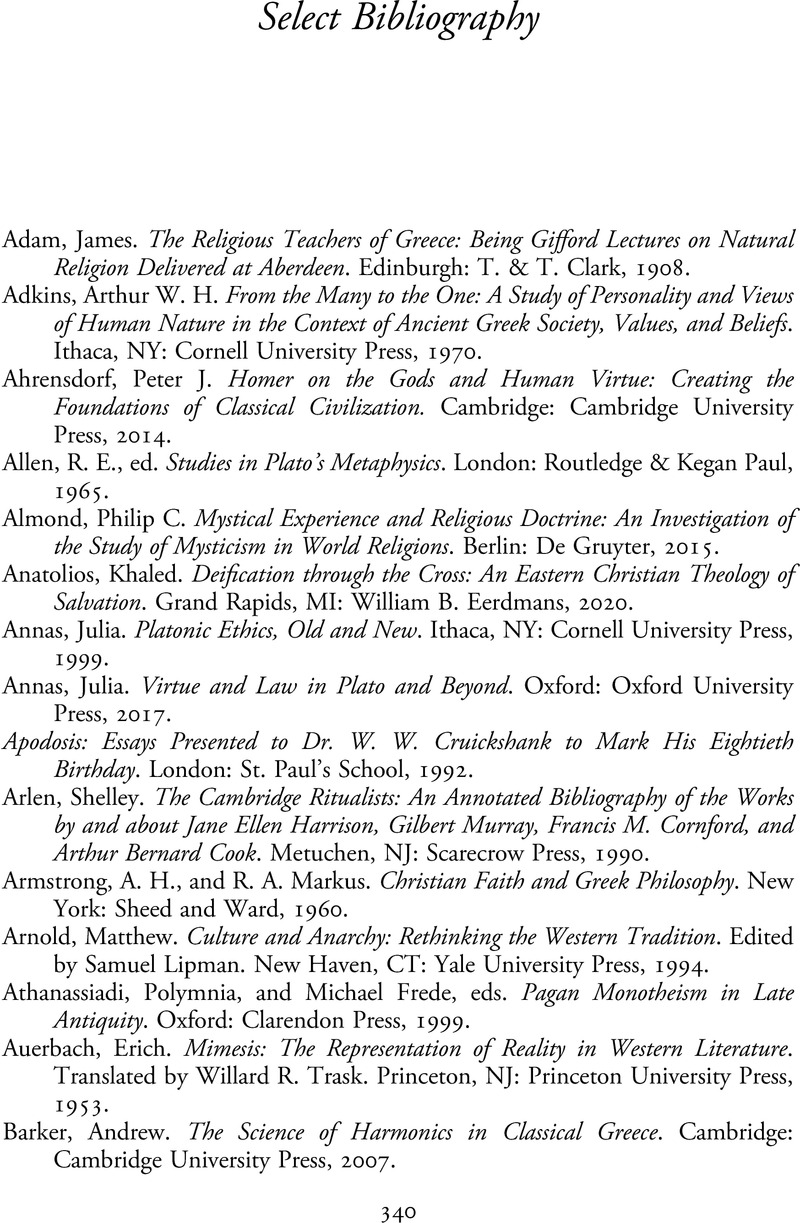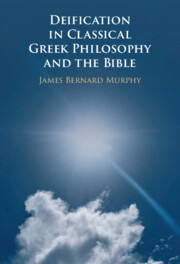Book contents
- Deification in Classical Greek Philosophy and the Bible
- Deification in Classical Greek Philosophy and the Bible
- Copyright page
- Dedication
- Epigraph
- Contents
- Introduction
- Chapter 1 Theology as Anthropology, Anthropology as Theology
- Chapter 2 Heroic Deification in Ancient Greek Religion
- Chapter 3 Ironic Deification in Socrates
- Chapter 4 Civic Deification in Plato
- Chapter 5 Developmental Deification in Aristotle
- Chapter 6 Deification as Intimacy with God in the Bible
- Conclusion
- Acknowledgments
- Select Bibliography
- Index
- References
Select Bibliography
Published online by Cambridge University Press: aN Invalid Date NaN
- Deification in Classical Greek Philosophy and the Bible
- Deification in Classical Greek Philosophy and the Bible
- Copyright page
- Dedication
- Epigraph
- Contents
- Introduction
- Chapter 1 Theology as Anthropology, Anthropology as Theology
- Chapter 2 Heroic Deification in Ancient Greek Religion
- Chapter 3 Ironic Deification in Socrates
- Chapter 4 Civic Deification in Plato
- Chapter 5 Developmental Deification in Aristotle
- Chapter 6 Deification as Intimacy with God in the Bible
- Conclusion
- Acknowledgments
- Select Bibliography
- Index
- References
Summary

- Type
- Chapter
- Information
- Deification in Classical Greek Philosophy and the Bible , pp. 340 - 355Publisher: Cambridge University PressPrint publication year: 2024



